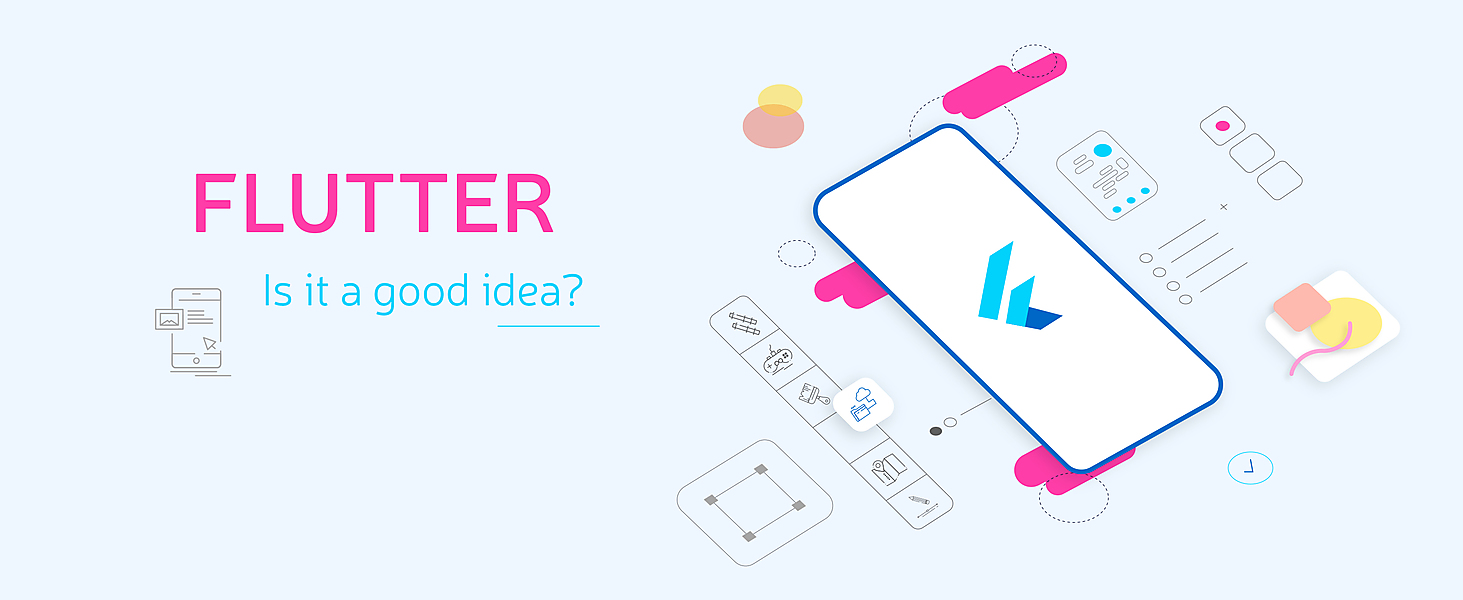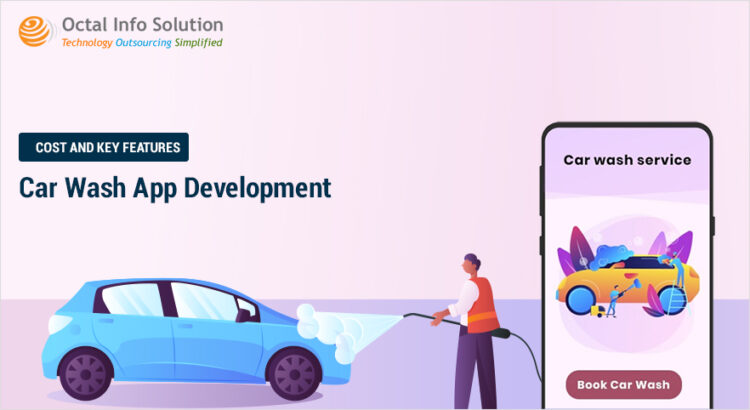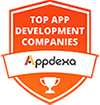Technology has been developing and growing each day, exponentially. With new inclinations, new trends, the modern age now relies upon the use of technology. Now the app and web development aren’t the identical as that they used to be.

If explaining the methods of development is quite complicated as native app development is continuously being replenished by techniques that appear to be more reliable and more valuable.
Among the growing trends, Flutter app development has been one of the techniques. It is open-source, it is free, and its new framework is used to design the various applications for other different platforms with the use of a single code.
The increasing user requirements as per the diversification of the platforms are building a significant demand to help in the development process, in which the flutter app development seems to serve favorably.
With the arrival of new variants and platforms, the companies have been striving to come up with a more active and comparatively easier and more natural process for development.
Flutter vs. Native Application Development
Let’s discuss a few critical features of Flutter that have influenced the native app development.
Productivity
Operating with the traditional tools and the support of technology, developers have been attempting to develop an app from scratch every time there’s a demand for a similar app, but a separate platform. This additional confuses the work for the developer and manages to affect performance and effectiveness. The development also has some technical specifications to satisfy the need for every new construction for a new platform. Although flutter application development has become an excellent choice for companies.
Development Process
For the process, there is a need for some amounts of codes to be written form and some tools that work mainly for a particular platform. The developers don’t demand to begin the development process from scratch every time they go forward with a development method for an app for a new platform. This supports the developers to be active and time-efficient making it an exceptional choice to work with.
UI Elements
The Flutter system itself reversed up the development process. It helps by allowing a large variety of host services of powerful UI elements to develop a custom user interface with more ease and has been furnished with its widgets to approve the high-end UI support. Flutter app developers assigned to the same are specialists to develop highly sensitive UI interface designs.
Technical Architect
Lined up by Google, both the structures, Android and Flutter, have their separate supporter architecture. The Native Android app development uses kaolin or java language, and Flutter utilizes Dart as its programming language.
Testing Support
Android being a leading platform in the industry, gives several tools to examine the native apps developed by the developers. Though Flutter grants its robust testing platform that permits the developers to test the app at multiple steps in the process of their development. It also has a blended characteristic of testing the widgets, which allows the testing of the performance of the UI interface developed through widgets. The tests are run in a different process that can be efficiently run in real-time or on real devices.
CI/CD Support
The development and launching process of the native apps is quite complex outside the IDE. Well, Android Studio does proffer all the assistance needed to develop automaton and testing abilities. But, third-party CI/CD servers such as Jenkins and Team City are justified because Google doesn’t have granted a CI/CD system to the Android. On the other hand, Flutter drives the way as it has the backing of Code magic.
The latter allows CI/CD systems without glitches. It also automates the classification, testing, construction, and packaging of Flutter apps without the requirement for configuration. Code magic further simplifies the development, testing, and launching of apps to Play Store.
Is Flutter All Set to Replace Existing Native App Development?
Flutter is entirely distinct and new in the market and has not yet been conventional to the developers. However, it is winning the limelight promptly and is being recognized as one of the essential aspects of the future development of the applications.
Although it’s a modern programming language, Flutter is simple to learn. It has now grown up with a full-fledged working model after a prosperous beta version test. Flutter app development is generally being favored by some of the preeminent brands in the world and is getting notoriety instantly.
Long story short, Flutter is easy to work with
App development utilizing this language is effective and less time-consuming. With its assistance, it is comparatively simpler to build similar or even better interfaces. This apparently gives Flutter app development many advantages and an edge over the development process of a native app.
Despite, moving ahead with Flutter app development straightaway is not a very smart choice. Going forward with a construction process and choosing one among many is reliant upon the specifications, resources, and goal of the development process.
Also Read: Most Important factors that will make your mobile app a success!
Although several leading brands and companies are generally choosing Flutter, there are still some tips and points that need to be considered before going recklessly.
• Flutter app development is rather affordable and cost-effective and provokes less amount of money as compared with the process of native app development.
• At the same time, it demands no separate development process for various platforms. It equips an organization under one roof of a single app for multiple platforms that can be used with more ease and with more features.
• Organizations that require a single platform that is rich in features, and with less availability of money, they most likely go forward with the development of Native application. The native app yet renders the best characteristics and designations. Still, the organizations not requiring the most significant benefits of the same may not require it. They may go forward with the Flutter app development process and work with comparable efficiency.
• Flutter is full of features and advantages that make it a decent and secure option but not comprehensive yet. Flutter is still lacking in so many functions but supports features such as Maps, OpenGL, Vidoe Support, and Approachability Support. It even has notches that are expected to be filled to make it a whole and great combination.
• The native development community is comparatively more extensive than the Flutter development community and hence, has differences in the services possible.
All in all, Flutter would make up a rather excellent option for the application development for businesses seeking to come up and build up an app very related to a native application. Various cross-platform frameworks keep developing and going from the market, but native apps have been the outstanding selection of the industry for long. For the organizations to get an app available for themselves but are furnished with fewer resources, here making a movie with the Flutter will be the right choice for them.
Future Prospects: Both the platforms, Android and Flutter, are supported by Google as the mother organization. It is no mystery that Google has been running over a number of cross-platform platforms; Flutter is one of them. So, when it comes to deciding between the two, it is like to choose between the two significant things. There have been a number of proposals over these two platforms, including the Flutter. So, it is quite tricky to pick between these two. Though these have been sort of debates over the origin of cross-platform applications in the future and about the chances that Android or Chrome being replaced.

Also Read: Flutter Mobile Application Development: What are its Pros & Cons?
Flutter leads to add up to the blaze of the debate and tends to promote the rise of the same. Several studies, articles, and discussions have stoked the fire even far away. Most of the companies are also discussing these matters, which are porting with the Flutter. Though what everyone is expecting about is Google’s take on both of its platforms, one is its native app development framework, and another one is the cross-platform app development framework.
Conclusion:
For the next so many years, The conflict and competition between native and cross-platform applications will keep going on. The future requires something with abilities like the development of cross-platform, but with great strength and assistance like native app development. So, it’s quite a terrible battle between these two.
The industry will continue building and keep watching for notches and the ways to work upon these gaps, to make a connection between these two platforms that are capable of satisfying the need and integrate the benefits of both the platforms with better performance and more effectiveness.
In 2019 flutter apps stand at the top of the share market, about 0.80% with a 0.50% install rate. Flutter is still prevalent in the market and will cover the large area supporting the smaller obligations until the time it develops consequential. With constant applications and meaningful changes, cross-platform capacities in the development will make up an excellent structure for the events that are going to happen in the future.


















